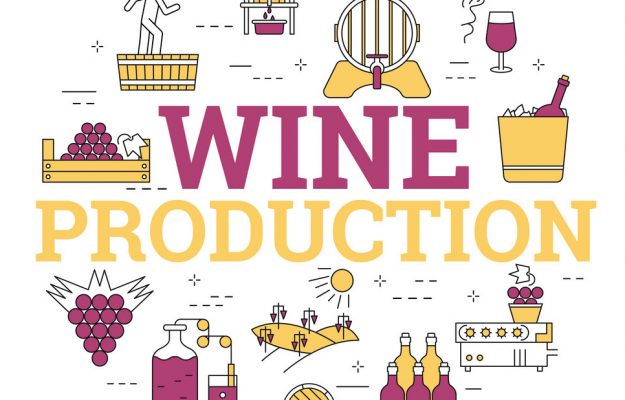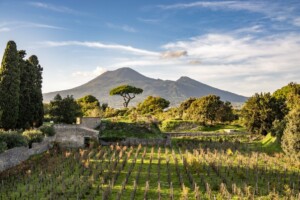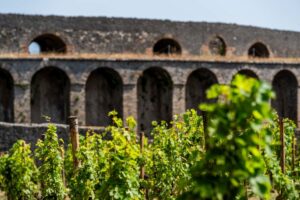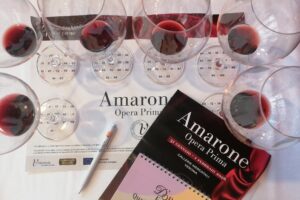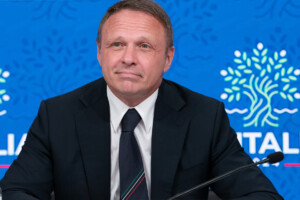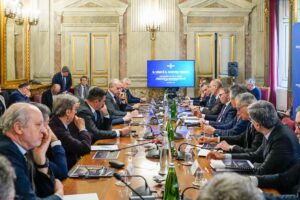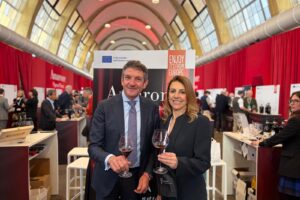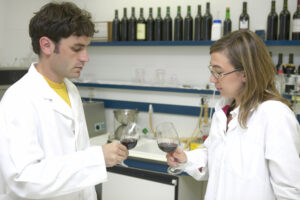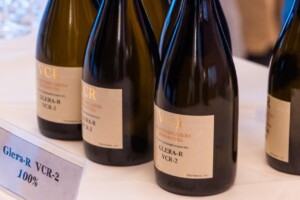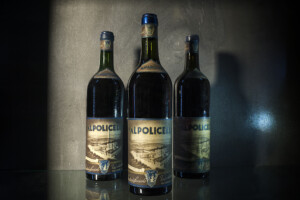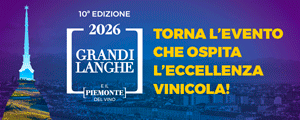A strategic and coordinated vision on a national level, despite the many differences that form the mosaic of Italian wine; the definition, as soon as possible, of the new CAP post 2020 and the CMO wine; the easing of international tensions, which slow down the markets, but not only: there are many “desires” for 2019 expressed by the organizations of the supply chain of the Belpaese, from Federvini to Unione Italiana Vini, from the Italian Federation of Independent Winemakers to Cooperatives, interviewed by WineNews.
“We must build a strategic vision of Italian wine, and not partial, linked to regions, provinces and consortiums - says the president of Federvini, Sando Boscaini – let’s establish where Italian wine wants to go, how we want to present ourselves abroad, in an organic and strategic way, talking about Italian wine and not individual territories or designations.
This is also what the reform of the CAP and the CMO are all about, the real challenges we are now facing. On the market front,” adds Boscaini, “we know that the sparkling wines are increasing, while the still wines are stuck. We need to work on promotion and export. Where there are difficulties due to international tensions, between the USA and China, to Brexit and not only, but we need a lot of attention because export is our oxygen, we must be “export-oriented” in the promotion and image of the country.
The fact that the Ministry has combined Agriculture and Tourism, gives us the opportunity to create a unique image of a country that has so many specialities to offer in the wine & food sector, together with its artistic beauty, landscape and hospitality, a total Made in Italy, a country that knows how to do good, beautiful and well done things”.
A vision shared by Ernesto Abbona, head of the Italian Wine Union, also on the theme of the union between Agriculture and Tourism, recorded when the Minister Centinaio, from Montefalco, land of Sagrantino, confirmed: “wine and tourism are the winning combinations to relaunch agriculture and the Italian tourism sector, the goal - said Centinaio - is to start the law on wine tourism. If we want to promote our country in the world, it is no longer enough to tell how beautiful it is, but also how good it is”.
“We closed the year by meeting Centinaio - said Abbona - who seems to be a person willing to listen to the supply chain, he has to work on a complex machine, although having combined tourism with agriculture is a very positive thing. The problem, however, is that agriculture and tourism are, in fact, in the hands of the Regions, which are difficult to coordinate with common initiatives at a national level.
In this sense, there are agencies that can and have to supply this, as Ice did, for example, with the countryside that has linked wine to the culture and various forms of art of the Belpaese. The desire is to find a place to address common problems, including market problems, looking especially abroad, which is where we must aim.
Where the situation is not easy, in general, we started the year with fluctuating stock exchanges, with such contrasting signals that it is difficult to make estimates. Bearing in mind that our sector is made up of companies that are not so quick to change product and strategy because we are rooted in the territories and denominations. In any case, it is a good thing that at EU level, in 2018, the agreement with Japan was closed, we hope that the same thing will soon happen with the Mercosur countries, and we hope that the tensions between China, the U.S., and Russia, will be extinguished, because they are key markets for our products.
First of all, critical thinking is needed to work on issues that we have always been carrying with us, from fragmentation to a narrow vision, which makes it more difficult to achieve certain results in a short time on the markets. We know our limits and our strengths, such as the ability to present ourselves with the right product in each niche, with a great differentiation that allows us to create values.
“We want a precise definition of the CAP as soon as possible - adds Matilde Poggi, head of the Federazione Italiana Vignaioli Indipendenti -since insecurity does not help the sector. However, it is a delicate moment, because the EU is about to replace the parliament. We did not manage to conclude with the Austrian presidency, we hope that the Romanian presidency will make a change, even if the uncertainty of the Parliament’s replacement will influence the decisions. We also hope that there will be no delays as in the recent past on the CMO.
From the markets - adds Poggi - I expect North America, the USA, and Canada, main references, developed markets that understand the products, where every wine can find its place. I am not sure about Asia, perhaps for us at Five, since we are small producers, and we cannot consider it as a reference, because we need more important numbers, while the independent winemaker, at first glance, reaches well-established markets, where it is no difficult to propose new things. On the other hand, Asia is today a market more suitable for large companies, who must open it, and it is important that they do it, because Italian wine has to be spread even in Asia.
One of Fivi’s most precise desires for years has been the redefinition of the system of representation within the Wine Consortiums, and Federvini, with Boscaini, also hopes for concrete investments in technology and broadband in the countryside. The European and international horizon is that which unites Uiv, Federvini and Fivi, as well as the list of desires of the Alliance of Cooperatives, which speak for the responsible wine, Ruenza Santandrea.
“From a commercial point of view, the hope is that this 2019 will be marked by international stability. Trade tensions, not to mention wars, between countries or country blocks, are very bad for the sector, considering that world trade in wine now counts alone more than 30 billion euros a year (OIV figure for 2018), when ten years ago, in 2008, world trade in wine amounted to about 20 billion euros. In addition to the stability of the geopolitics of wine, the expectation is that the European Union will continue with the policy of trade agreements, to ensure that European producers have the same conditions of access (duties, tariffs, technical barriers to trade) to the markets that our main competitors enjoy”.
On the political front, Santandrea adds, “the hope is that the new year just begun will lead to an even more efficient management of the measure of promotion in third countries of the Ocm wine: not only the opening of new markets but also consolidation of existing, thus overcoming the taboo of the maximum duration of five years. At the same time, always looking at Brussels - central for our sector - the time has come for far-sighted rules for informing consumers about calories and the list of ingredients, with solutions that look to 2030 and not to the past.
Finally, I would like to express the desire, perhaps the one I feel most strongly about, that the world of Italian wine learns to accept all the differences and nuances that characterize it. Diversity is our wealth, and not an opportunity to divide: we put at the center of our responsibility to be world leaders in this beautiful product, with the obstinacy to ensure every day an income for our winemakers.
Copyright © 2000/2026
Contatti: info@winenews.it
Seguici anche su Twitter: @WineNewsIt
Seguici anche su Facebook: @winenewsit
Questo articolo è tratto dall'archivio di WineNews - Tutti i diritti riservati - Copyright © 2000/2026










